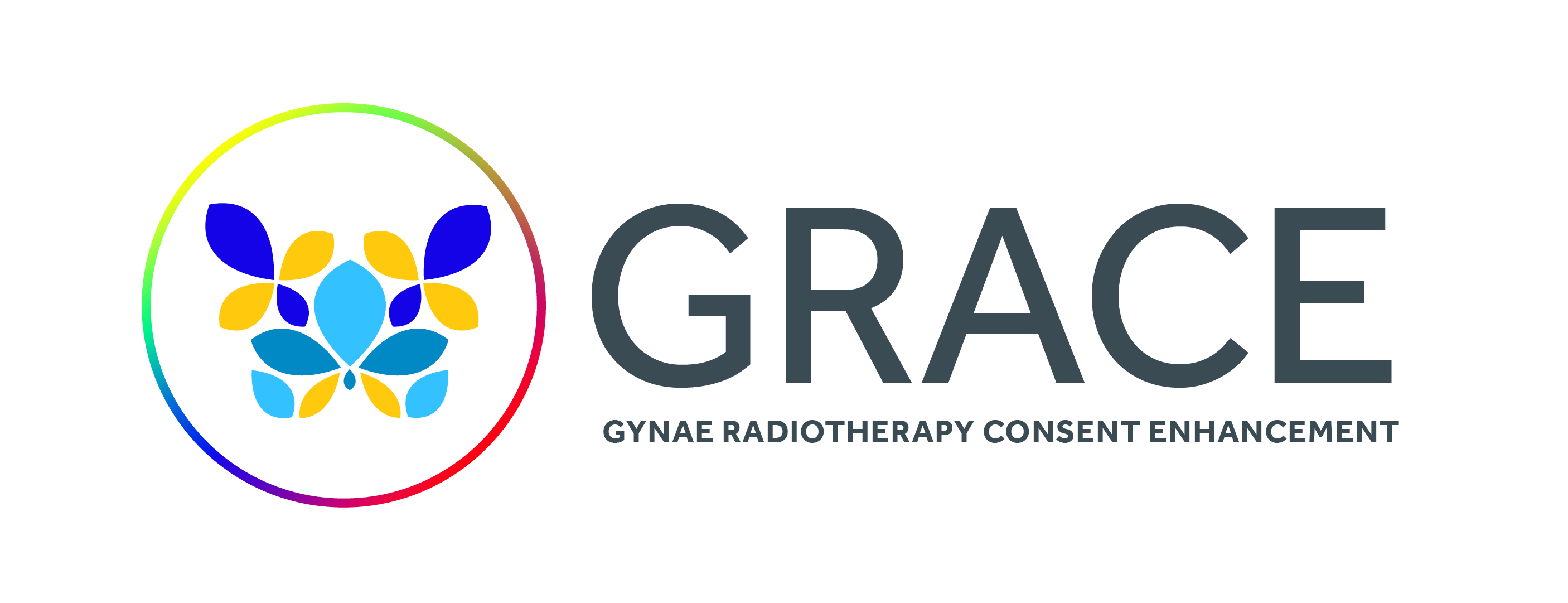
About the project
GRACE (Gynae Radiotherapy Consent Enhancement) is a research collaboration between Lancaster and Bangor Universities, funded by the National Institute for Health and Care Research (NIHR). The project will run from September 2024 until February 2027.
GRACE will improve how people make decisions about consent for radiotherapy for gynaecological cancer.
In 2021, researchers at Lancaster University listened to the stories of those who had been through treatment for gynaecological cancer. Some said they didn’t fully understand what their treatment would involve. Some felt unprepared for the impacts on life afterwards.
GRACE wants to change that. Our goal is to improve the way we talk about radiotherapy and its effects, so everyone knows what to expect and can better prepare for what’s ahead. By sharing clear information – using both figures and real stories from patients – we’re making sure it’s easier to understand. This way, people can feel less anxious about their treatment choices and more prepared for their future.
The GRACE team combines experts in understanding effects of cancer treatment, clinical practice, and health research. Together, in a three-part project, we’re working closely with patients and the public to make sure everyone’s voice is heard.
We will
Explore experiences of consent
We’ll talk to people who have either had radiotherapy for gynaecological cancer or decided not to have it. By interviewing them, we’ll learn how the treatment and decision-making process affected their lives. We’ll also hold focus groups with caregivers and healthcare professionals to get their insights.
Identify what matters most
We want to understand which benefits and side effects are most important to patients in the long run. To do this, we’ll create a survey asking patients to make hypothetical choices. We’ll test the survey with a small group first to make sure it’s easy to follow, then share it more widely online to find out what people value when it comes to these tough decisions.
Create better ways to gain and give consent
We’ll work together with key people – like healthcare professionals and patients – to develop new, clearer ways for consenting to radiotherapy. This will include new policies, procedures, and resources to support decision-making. To get started, we’ll survey healthcare professionals to understand the resources they currently use. We’ll then run workshops with key stakeholders to co-create improved approaches. Finally, we’ll test the resources and evaluate the cost of using them in practice.